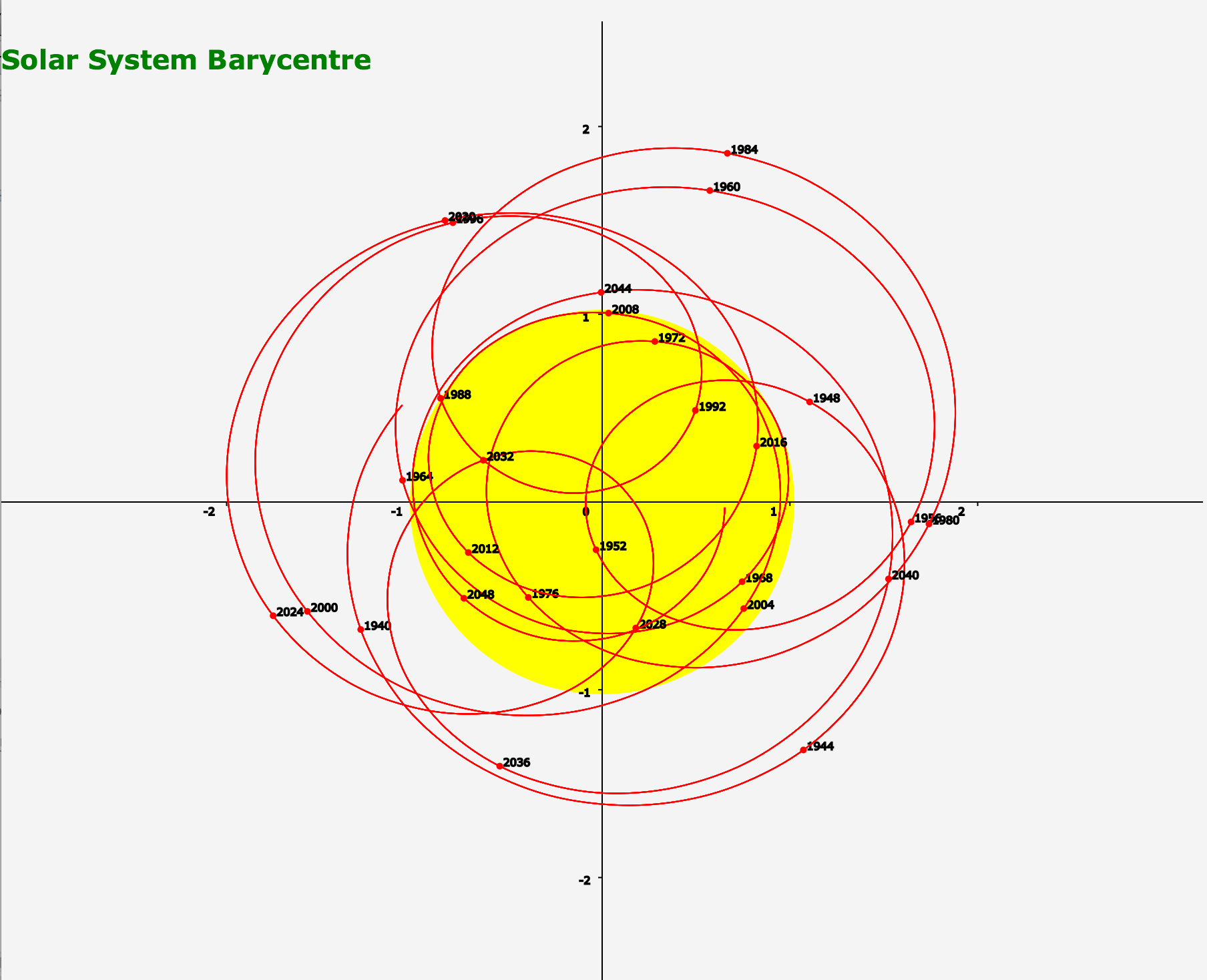Why does adding a second planet affect the orbit of the first planet?
1 Answer
Gravity causes all planets of a solar system to affect each other's orbits.
Explanation:
A sun and all of the planets and other bodies of a solar system affect each other gravitationally.
A planet doesn't orbit around its sun. Rather the sun and all of the planets orbit around the centre of mass of the solar system which is called the solar system barycentre.
If there is only one planet in a solar system it will orbit around the barycentre of the sun and itself which is fixed by the relative masses and the distance between the planet and the sun.
If a second planet is added the sun and the two planets each orbit around their common centre of mass which is constantly moving. This means that the orbits of the two planets are constantly changing.
In addition the two planets will affect each other's orbit by direct gravitational attraction. This effect is strengthened if the orbital periods of two planets have a ratio which is two small integers called a resonance. For example Neptune and Pluto are in a 2:3 resonance which means that despite the fact that their orbits cross they are never close enough to collide.

The diagram shows the position of the solar system barycentre for our solar system over a period of decades. The Sun and all of the planets are actually orbiting around the solar system barycentre which is constantly moving. It can be anywhere between the centre of the Sun and about two solar radii from the centre of the Sun depending on the relative positions of the planets.

